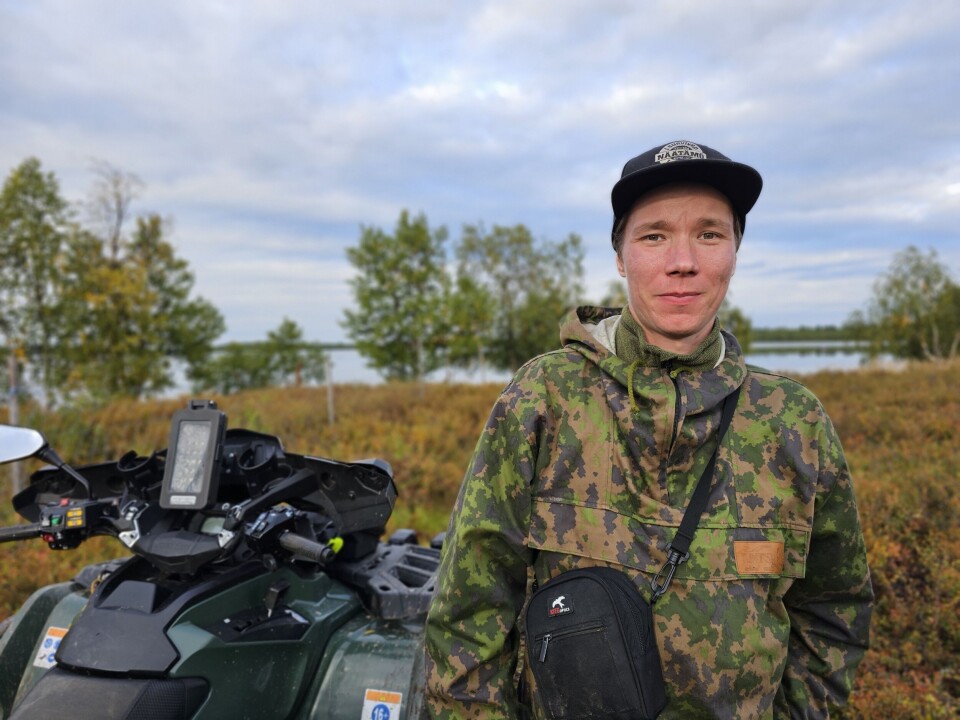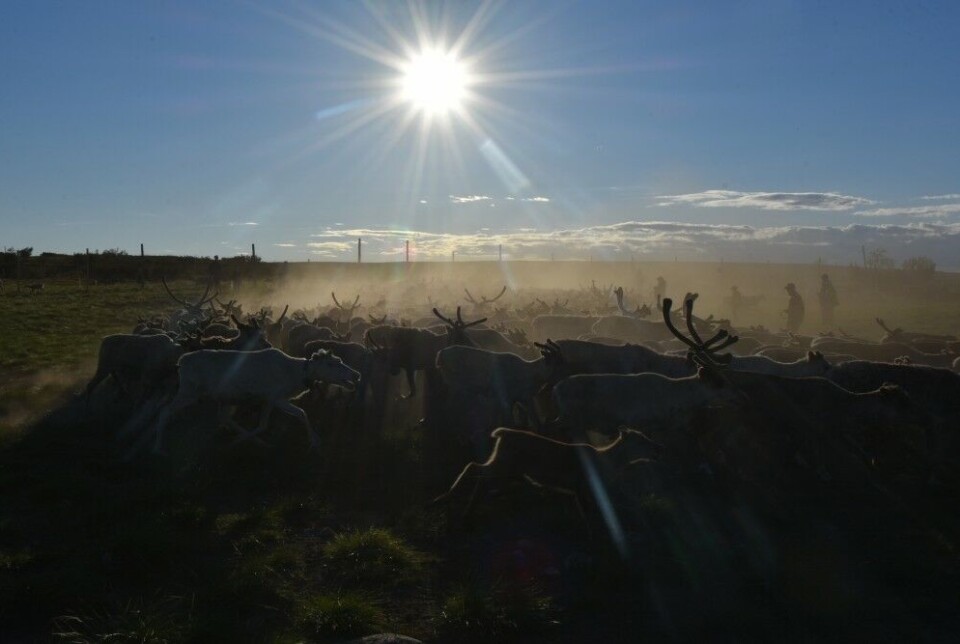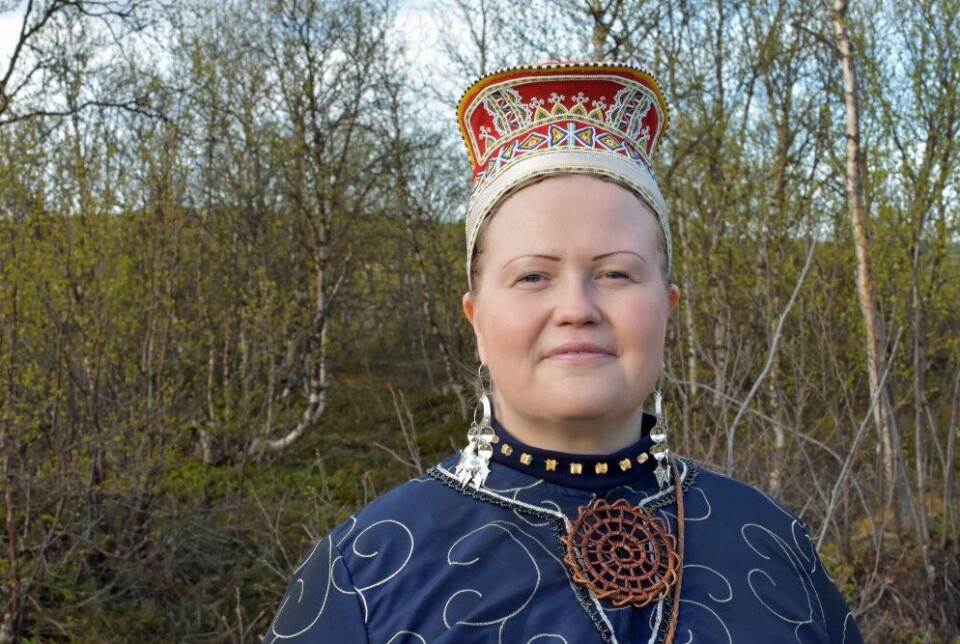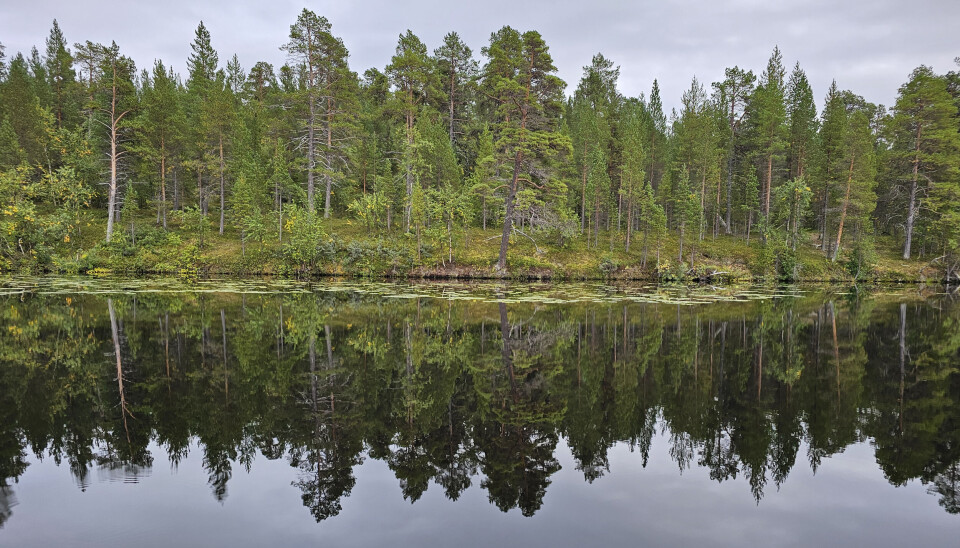
Finland faces UN complaint over climate change inaction and impact on Sámi traditions
One of the world’s biggest and most prestigious law firms has joined forces with a group of Sámi reindeer herders to lodge a complaint at the United Nations against the Finnish government.
With a London headquarters that has all the refined designer touches of a boutique hotel, an annual turnover approaching $3 billion, and hundreds of lawyers working in 22 countries, Hogan Lovells is a global giant in the legal industry.
It’s a far cry from the wilderness expanse of the tunturi - fell country - of Finnish Lapland with its endless forests, lakes and swamps; and even further still from the traditional lives of Indigenous reindeer herders in the area around Muddusjärvi lake.
But the unlikely allies have teamed up to take on the Finnish government, accusing it of breaking the terms of an international treaty, and putting traditional livelihoods in peril.
Specifically, the complaint, which was lodged with the United Nations in Geneva in June, alleges multiple breaches by the Finnish Government of the International Covenant on Civil and Political Rights. Drafted in the mid-1960s, the ICCPR is considered a cornerstone of international law, and a key piece of legislation governing the actions of UN members.
Finland signed the Covenant in 1966, and ratified it in the national parliament in 1975.
"We have lost on every step on the way in the Finnish court system, so we don’t have any other option left except to go to the UN human rights committee," explains Tiina Sanila-Aikio, the secretary of the Muddusjärvi Reindeer Herders’ Collective, and also a former president of the Sámi Parliament in Inari.

Excessive logging claims
The Muddusjärvi Collective has several possible legal avenues to pursue, but the issues of logging by a state-run company is a particular problem.
"Logging has been very huge in our areas, for example winter grazing in old forest areas have been logged [cut down] by 47 percent. Almost in half," says Tiina.
The main culprit, activists say, is the state-owned forestry management company Metsähallitus.
These forests are vitally important to Sámi communities, Tiina says. "And if we don't have forests we don't have any tree lichen, because the lichen grow in trees too. When there is 'iron snow' the reindeer cannot dig up, they look for lichen in the trees. But if the state has cut down the trees, the reindeer are going to starve," she states bluntly.
"When these forests are gone, we lose the possibility to practice our culture in the traditional Sámi way."

A recent report commissioned by the Finnish Truth and Reconciliation Committee backs up the reindeer herders’ complaints.
The study, written by researchers Jan Saijets and Jarmo Pyykkö, concludes that “the cumulative harm caused by forestry to Sámi reindeer herding has already been considerable,” and impacts their “fundamental and human rights”.
While Metsähallitus is not able to comment on the UN complaint before an official Finnish government response, they say that they “manage, use and protect the state-owned natural resources” in a way that “supports the conditions for Sámi culture to continue.”
“We have good and regular cooperation with the reindeer herding cooperatives,” says Samuli Myllymäki, Regional Director for Lapland at Metsähallitus Forestry Ltd.
“We always take reindeer herding into account when planning and carrying out forestry operations. We have also developed our methods and practices based on the needs and wishes of the reindeer herding communities.”
Myllymäki points out that there are a number of different agreements in place with specific reindeer herder collectives, and an overarching Natural Resources Plan “agreed together with local stakeholders.”

Overall, Metsähallitus paints a more positive picture of the situation for traditional, Indigenous reindeer herding, but Dr Jan Saijets - author of the recent report into forestry activities in Sápmi - talks about the significant historical and cumulative impacts of the state’s forestry activities.
“It will take 50 to 100 years before the impacts have reached a much lower level. With correct thinning, young forests could be restored as pastures, but Metsähallitus don’t want to do that, or do it in a way the reindeer herders want it to be done,” he explains.
“Metsähallitus claiming that they have good and regular cooperation with reindeer herding cooperatives is quite far from the truth.”
Legal precedent
In London, Will Robinson is the lead counsel handling the Muddusjärvi case for Hogan Lovells, and says there are particular challenges involved in taking on a government.
"The key challenge is identifying the best legal hook to hang your hat on. The international legal landscape can feel like difficult terrain to Indigenous people seeking to protect their human rights," he explains, in his first interview on the subject since filing the complaint in June.
"We first had to identify the causes of action they could base their complaint on, and how they could use it to exert pressure on the government."
The Muddusjärvi reindeer herders are one of just three remaining Inari Sámi reindeer herding collectives, and Hogan Lovells says their way of life is "uniquely dependent on forest pastures and Indigenous ecological knowledge," and that dispossession of their traditional land, lost to logging, has severely damaged their traditional way of life.
The lawyers are using a 2022 precedent set by an Indigenous group in Australia to build their case in Finland, and Will Robinson describes this area of international human rights law as "a very exciting trend in holding governments to account for not doing enough proactively for the rights the laws are designed to protect."
In the 2022 Australian case, the United Nations Human Rights Committee found in favour of a group of Indigenous people from the Torres Straits Islands, who argued that climate change was having direct harmful consequences on their livelihood, their culture, and their traditional way of life. The UN committee ordered the Australian government to take swift action to halt the harm to the Islanders’ traditional way of life, and compensate them for the damage they had already suffered.
Finland’s Indigenous Sámi people are no strangers to taking on the state at a global level working through the United Nations.
In October 2024, two UN committees found that Finland violated Sámi rights to culture and land, by granting mineral exploration permits on their territory without an impact assessment or an adequate participation process. The complaints had been lodged by a group of Sámi reindeer herders, including children.
Reindeer herding is a traditional way of life for many Sámi people, and it's been practiced for generations in some families.
It’s autumn - Čakča - in Sápmi, the traditional Sámi homeland area. At this time of year it’s rutting season, and the reindeer will soon start making their way south to the corrals, before the first snow, fattened up for winter on mushrooms and moss.
For traditional Sámi reindeer herders like 29-year-old Jussa Seurujärvi this is a season to be out on his six-wheel ATV repairing fences, looking for any reindeer in need of veterinary attention, and hopefully making time for some hunting as well. He’d like to emulate last year's result when he shot and killed a huge 230kg brown bear.
“Climate change is making our work and reindeer life unpredictable,” says Jussa.
“We don’t know what type of winter we are facing, and how is the next summer. Is it cold? And when it is cold, nothing grows out of nature.”
When reindeer starve to death without enough food to eat during winter, there is some compensation available for reindeer herders. But as Tiina Sanila-Aikio explains, while they have received additional funds from the Finnish government to cover some of the extra costs of buying more food for the reindeer, it is not nearly enough.
Finland’s whole reindeer herding areas “had some very bad reindeer herding years, especially in 2019 to 2020. There was 32 million euros lost, and we got only six million in compensation altogether."
Professor Martin Scheinin, a Finn who was appointed as the United Nations’ first-ever Special Rapporteur on human rights and counter-terrorism in 2005, is advising the Muddusjärvi Reindeer Herders’ Collective.
He describes the case as a “tall order.”
"We don’t know if there is a prospect of success at the UN, with a positive obligations case with financial implications. But in my view this is worth trying and worth making use of in a wider context of advocacy that may deliver results in some other context in the future."
If a legal decision is to come via the United Nations, it could take years.
"The UN Human Rights Committee is overburdened and now also subject to the UN liquidity crisis," explains Professor Scheinin.
"We fear very long delays before the [reindeer herder] case is decided there, in the magnitude of five years.”
The Finnish government has until 15th October to formally respond to the Muddusjärvi-Hogan Lovells complaint in Geneva.
Finland’s environment minister Sari Multala, from the ruling National Coalition Party, did not respond to a request for comment.



















